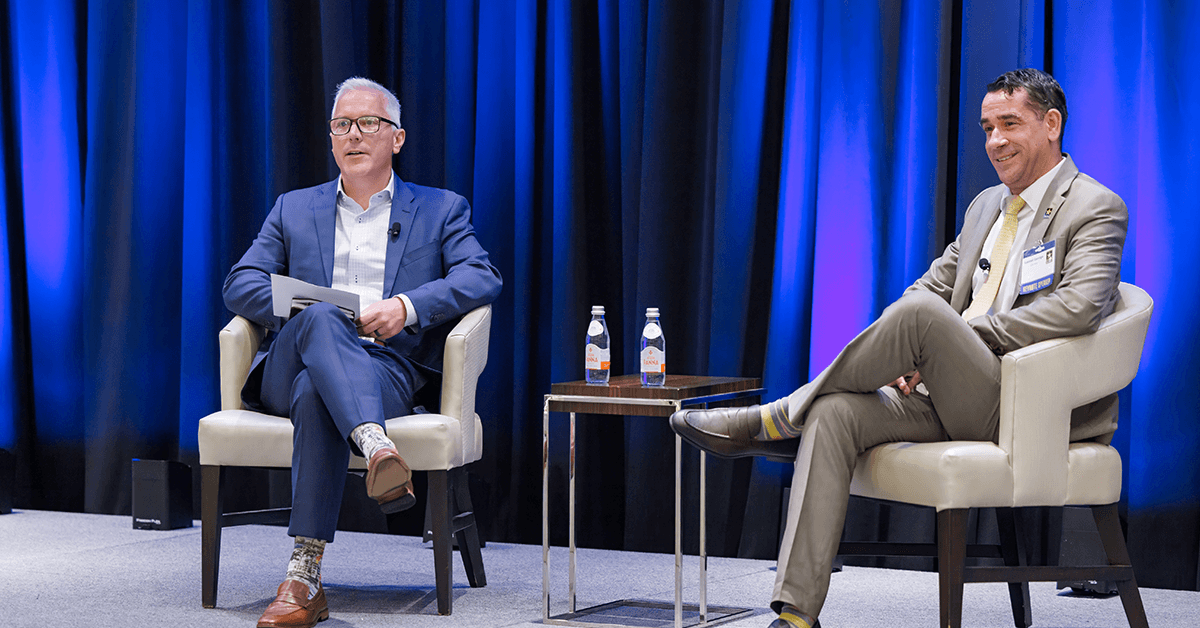The U.S. Army is at a “major transition point,” according to Army Chief Information Officer Leonel Garciga. The service branch is currently laying down the foundational work that will enable faster-than-ever software delivery, acquisition, testing, training and other critical initiatives.
Garciga, a 2024 Wash100 Award recipient, outlined his top priorities for the next two years during his closing keynote address at the Potomac Officers Club’s 2024 Army Summit in June. His number one concern is addressing what he calls “resource understanding bureaucracy.”
“What I mean by that is those things that we do to understand what our IT spend is. We are late in the game right now as a department to still have some very unspoken bureaucracy,” Garciga told an audience at the Army Summit. “We’ve gotten so much better at seeing ourselves that we can kind of take some of these — and my words — very draconian approaches, very centralized at headquarters level, removing commanders out of the decision making space. Not my philosophy. So we want to push some of that down. We can see the data, automate that, be responsible with our dollars.”

Another one of Garciga’s main focus areas is improving DevSecOps pipelines for capabilities being delivered to the Army. Whether those capabilities are government-owned/government-operated, government-owned/contractor-operated or contractor-owned/contractor-operated — referred to as GOGO, GOCO and COCO, respectively — Garciga said he wants a solidified way to improve and accredit DSO pipelines.
Next, Garciga wants to rethink the Army’s approach to leveraging all the capabilities it has in a way that makes the most sense.
“This idea of everything needs to go to cloud is just insanity. It doesn’t make any sense,” said Garciga. He explained that the Army needs to be “rethinking what our strategy is for cloud and that integration between cloud and on-prem and laying that down.”
And lastly, Garciga highlighted the importance of establishing the necessary foundations for before adopting and implementing technologies like artificial intelligence.
“I’ve heard a bunch of folks talk about AI/ML, and I always chuckle. I’m like, ‘guys, let’s focus on the foundation.’ We still have things we need to do. Where are our data sets? Who’s working on them? Are there areas we need security? Can we at least make some of these capabilities available to folks?” he posed to the audience.
Discover insights from government decision makers at Potomac Officers Club events. Join the next event, the 2024 Air Defense Summit, on July 23.




